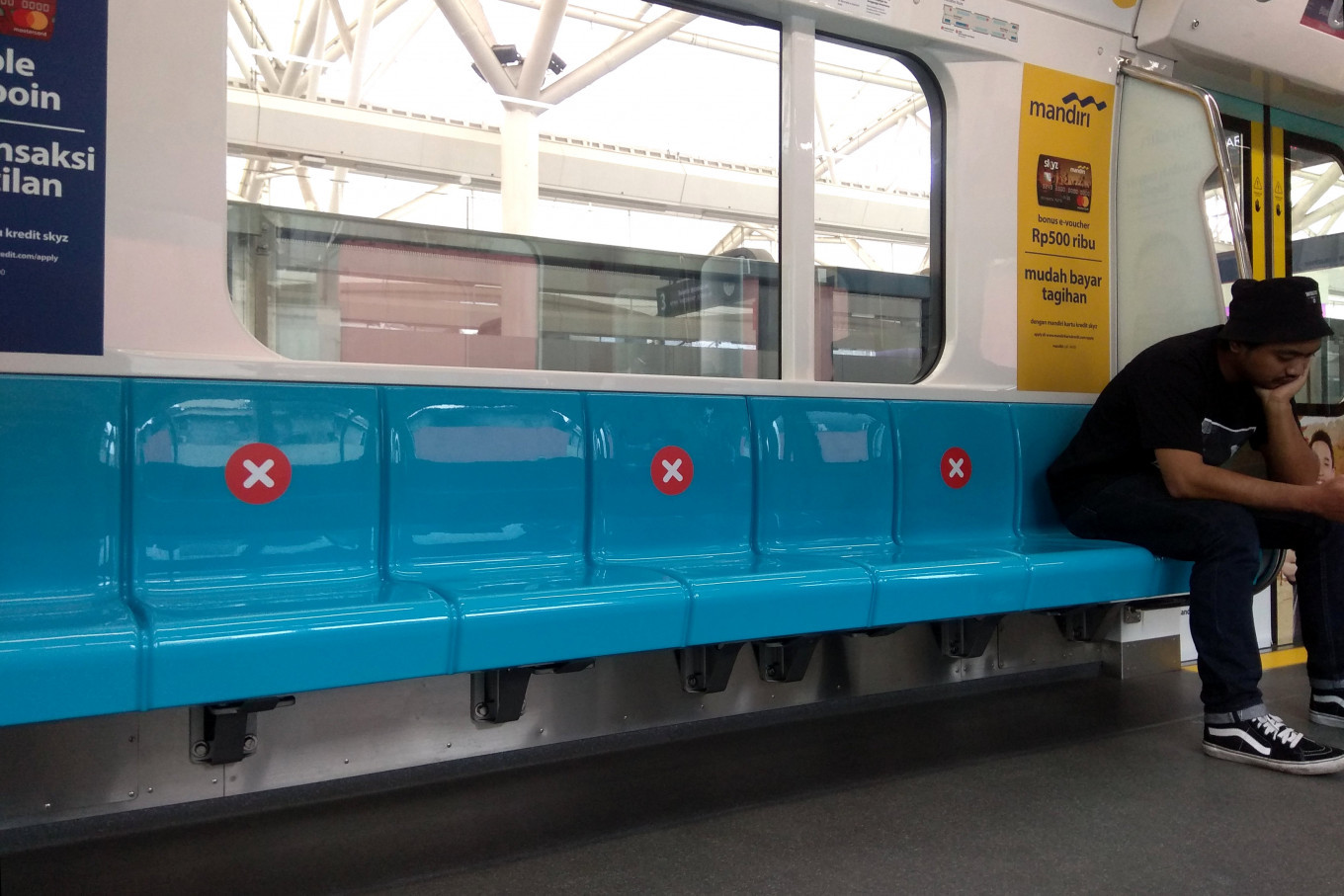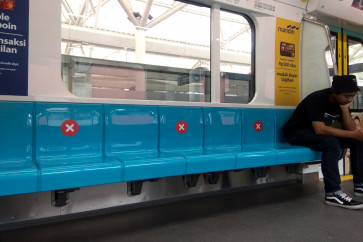Popular Reads
Top Results
Can't find what you're looking for?
View all search resultsPopular Reads
Top Results
Can't find what you're looking for?
View all search resultsMRT Jakarta turns to innovation for extra income
Change text size
Gift Premium Articles
to Anyone
C
ity-owned public transportation company PT MRT Jakarta, the operator of the country’s first subway service, is striving to find alternative sources of income after reporting a fall in ridership during the COVID-19 outbreak.
MRT Jakarta began operation in April last year. But the number of MRT passengers dropped dramatically during the implementation of COVID-19 restrictions in the city since April.
The operator served an average of 90,000 passengers daily between January and March, but the number dropped to about 5,000 in April and 1,400 in May. Since the city began easing restrictions in June, the number of passengers has slowly risen. It served 13,000 passengers a day in September.
“The pandemic makes us realize that relying on revenue from ticket sales will only lead to the collapse of the business," MRT Jakarta president director William Sabandar said recently. "This year, we set a 1:4 ratio of ticket sales to non-ticket sales as a revenue target. Last year, the ratio was 1:1."
“We hope the revenue from ticket sales will rise in the near future. And when it happens, we will also have non-ticket revenues,” he said.
The company is set to tap into other sources of income after utilizing its mobile app, websites and social media for advertising space and other commercial purposes, as well as providing virtual training for small and medium enterprises (SMEs) and start-ups.
Read also: MRT Jakarta drafts new business model amid falling ridership


















